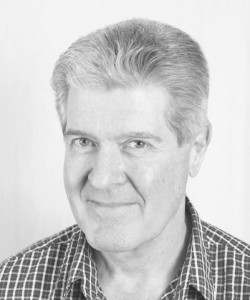My Best Way to Retire is …
I am often asked the best way to retire. It’s not an easy answer because everyone is different in terms of their dreams, personal situation and money. However, I can tell you with genuine insight how I personally am approaching and dealing with retirement. I’m in the second half of my sixties and so far, so good. This is how I’ve handled it so far.
The first thing I did was not to sit back, do nothing and let it just happen to me. I started thinking seriously about it around 10 years ago. I thought about it a lot and actually visualised what I wanted my retirement to look like, and feel like. I practised what I preach. That is, to be able to enjoy my retirement on my terms requires some fair dinkum planning.
A question I get asked a lot is …. “If you are retired, why are you still working?”
My answer is that I hate golf, I am a lousy fisherman and I don’t want to haul a caravan around Australia.
When I thought about my own retirement, I thought about three (3) things:
- Purpose
- Health; and
- Money
Health
The way I see it, without good health I won’t be enjoying retirement on my terms. The money will play a different role. It will be financing medical costs and life extension rather than the life I had planned. So when I wake up each day, it is not money or purpose I am thinking about. It is maintaining good health. Because it is only with good health that I can make the rest of it work. I confess right here that I haven’t been anywhere near perfect or disciplined about this over my life and, as so often is the case, I got a big wake-up call recently, which fortunately I survived. Fortunately, it wasn’t a heart attack or a stroke but only because I am a believer in regular medical check ups and the signs were detected early. It was two things. The first was 5 years of Atrial Fibrillation for which I eventually had two catheter ablations. The second was a deteriorating aortic valve which resulted in an open heart valve transplant last year. After all of that, I lost weight, reduced the lifestyle risks and am making the most of my new lease on life. I consider myself very fortunate to get another go at good health so it remains my top priority.
Purpose
I struggled with this for a while because I wanted to do something worthwhile and self-satisfying. I’m a bit of a home-body but not 24/7. I do like to travel, so does my wife. At the other extreme, I didn’t want to be on holidays forever nor do I want to hang out with old farts, comparing health problems and medications. I think that is the fastest way to meet the grim reaper. I know not everyone likes their job but I do. I actually like being a financial adviser because it helps people, and after all these years I have gotten really good at it. So why give it up? The solution for me is to work part time and leave plenty of time for coffees, travel and socialising. There is no rule that says retirement must be devoid of all work, or that money can’t be earned along the way. The way I see is that it’s nothing more than a new and evolving phase of my life cycle and I can structure it any way I like. Besides, if I am working, I am not annoying my wife and she is free to enjoy her retirement in a way that best suits her. Also I think flexibility is the key here. If I find something more than work that I am more passionate about, trust me I will quit working and start doing that. I most certainly don’t view retirement as a homogeneous journey. For me, I want it to be a time of fulfillment as well as a time of new experiences.
Money
Money is certainly important but not my top priority. There are many ways to get money and it really doesn’t matter how, provided that it’s legal. In my view, the main purpose of money is to provide choices throughout retirement, such as accommodation, standard of living, travel and fun; then in later years (much later hopefully), to pay for medical expenses, aged care and a funeral. Money doesn’t buy health or purpose. It also doesn’t buy a happy marriage or replace a lifetime partner or lost friends. For me, my biggest retirement goal as far as money is concerned was to be debt free before cutting back on work and allowing myself to think ‘retirement’. Without debt, I can live very cheaply if I want to; and importantly I can conserve money that might be needed later if health and mobility deteriorate. Of course, out of all the different types of personal debt, the home mortgage is the one that takes the longest time to whittle away. But credit card debt and personal loans etc also have to go. In retirement, carrying debt is like dragging an anchor. It will strip away retirement savings in no time, which can make the later years of retirement downright miserable. My second priority is to try to be as tax-free as possible. Of course this is impossible while I am still working part time but access to superannuation benefits after age 60 (with conditions) and after age 65 (without conditions) certainly helps the cause. In the end, everyone in retirement needs some form of income to live so in that sense, paying tax if necessary is generally a good financial sign.
So there you have it. That is my take on retirement. What you do will be different to me, but the process of planning it should start early. The reason I say that is while there is plenty of time to contemplate your retirement purpose, you might want to start getting a grip on your health before you get the frightening wake up call; and you might want to start saving and buying some investments that can help with the retirement cause later on. The issue isn’t whether you utilise or trust superannuation or not. Superannuation for all its complex rules and government tinkering is just a tax concession, nothing more. The main game here is you taking action early enough to squirrel away some money and assets for later on. The challenge is to do it when you have so much else on.
Call me if you want a chat. All I charge for a first meeting is a cup of coffee. I am much more interested in getting to know you and your circumstances; and figuring out how I can help you, rather than what I can sell you.
Cheers
Gary




 In the words of Tennessee Williams, “You can be young without money, but you can’t be old without it”. Retirement is often referred to as the golden years, but for many a golden years retirement is a myth, and not just because of a lack of money.
In the words of Tennessee Williams, “You can be young without money, but you can’t be old without it”. Retirement is often referred to as the golden years, but for many a golden years retirement is a myth, and not just because of a lack of money.
 Whether we are employed or business building or both, we all face the same problem. That is, how to finance that period of our lives from so-called ‘retirement age’ to the day we die.
Whether we are employed or business building or both, we all face the same problem. That is, how to finance that period of our lives from so-called ‘retirement age’ to the day we die.







